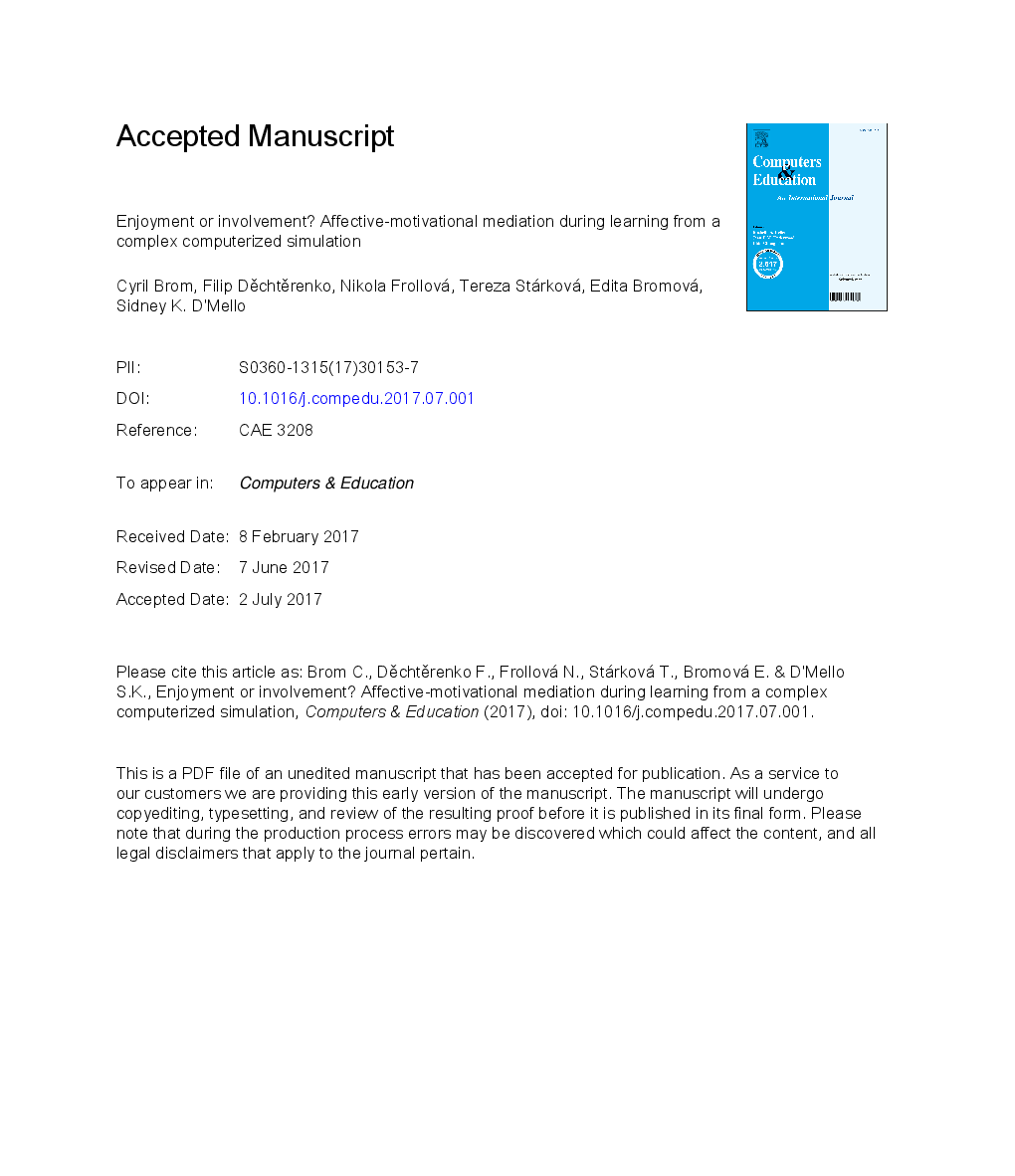ترجمه فارسی عنوان مقاله
لذت بردن یا دخالت؟ میانجیگری مؤثر و انگیزشی در هنگام یادگیری از یک شبیه سازی کامپیوتری پیچیده
عنوان انگلیسی
Enjoyment or involvement? Affective-motivational mediation during learning from a complex computerized simulation
| کد مقاله | سال انتشار | تعداد صفحات مقاله انگلیسی |
|---|---|---|
| 123608 | 2017 | 61 صفحه PDF |
منبع

Publisher : Elsevier - Science Direct (الزویر - ساینس دایرکت)
Journal : Computers & Education, Volume 114, November 2017, Pages 236-254
ترجمه کلمات کلیدی
تأثیر مثبت، جریان، انگیزه، علاقه موضوعی، یادگیری چندرسانه ای،
کلمات کلیدی انگلیسی
Positive affect; Flow; Motivation; Topic interest; Multimedia learning;

